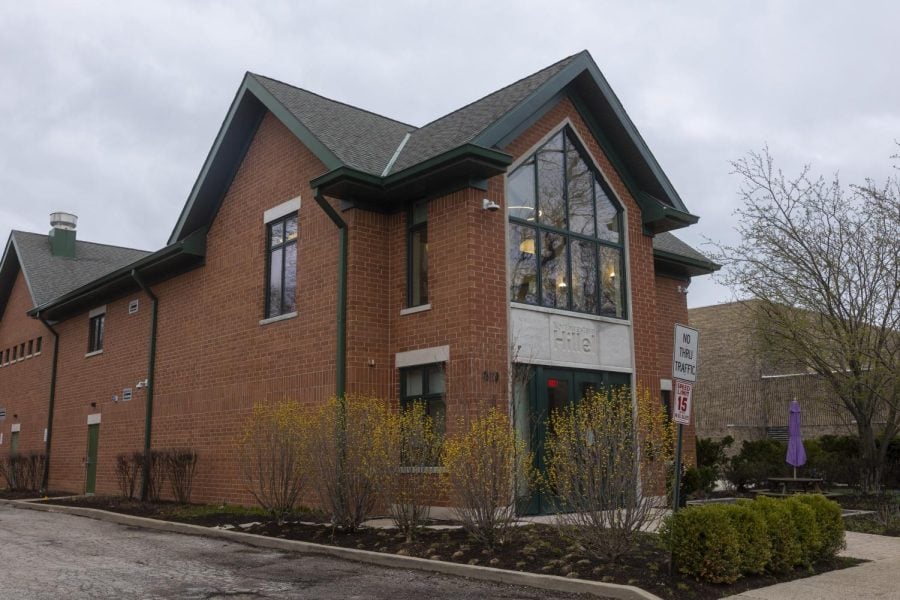Students and faculty express frustration over lack of class cancellations on Jewish High Holidays
Ava Mandoli/The Daily Northwestern
Hillel hosts dinners and services targeted towards Northwestern’s Jewish community throughout the school year. During the High Holidays, Hillel plays a pivotal role in supporting observing students.
October 11, 2022
Bienen freshman Jeremy Berkun had to choose between participating in Yom Kippur services or attending class last Wednesday. In the end, he chose class.
“I would have been more observant had there not been classes on those days but because there were … I felt obligated to not just go to them but to participate in them,” Berkun said.
Rosh Hashanah and Yom Kippur are the holiest days of the Jewish year. Rosh Hashanah marks the Jewish New Year, and Yom Kippur, a day of fasting, observes the Day of Atonement. Many people spend the High Holidays refraining from work, attending services and celebrating with family.
This year, Yom Kippur began at sunset Oct. 4 and ended at nightfall Oct. 5, while Rosh Hashanah occurred from sunset Sept. 25 to nightfall Sept. 27 — falling mostly on days when classes are in session at Northwestern.
In recent years, Berkun and other students at NU have voiced frustrations over the administration’s policy on allowing professors to host classes on religious holidays. With a large Jewish population on campus, some believe classes should be canceled on High Holidays.
Medill Prof. Jon Marshall, who observes the High Holidays, said NU’s academic calendar is particularly difficult because of the overlap between the early fall holidays and classes.
Marshall said he would prefer NU start its school year sooner.
“If they can start the quarter even a week earlier, so that these holidays aren’t falling on the very first days of class, that would put a lot less stress on students,” Marshall said.
NU Hillel Executive Director Michael Simon said between 1,100 and 1,200 students observe the High Holidays. The center offered a variety of services for students who identify within different sects of Judaism — but Simon said he doesn’t know if canceling classes is the way to move forward.
“It would be really challenging to pick which holidays, whether Jewish holidays or other religious holidays, to have a schoolwide day off for,” Simon said. “What works best is where you have students aware of how best to communicate with their professors.”
Simon said Hillel did its best to accommodate fasting students last Tuesday and Wednesday. Hillel offered a prefast meal, including chicken and a variety of vegan options, as well as a Break Fast feast, including bagels and smoked salmon.
However, Berkun said his friends have struggled to make up missed work as they attended services on Yom Kippur. He said NU should cancel classes for all major religious holidays.
Since dozens of different religious groups populate NU’s campus, canceling classes for the High Holidays may also mean prioritizing certain religions over others. Still, some students said there’s hypocrisy in this argument when discussing class cancellations, as the school schedules its breaks around Christian holidays.
The NU academic calendar is designed to avoid conflicts with observed holidays, such as July 4, Thanksgiving or Christmas, according to the University’s policy for academic accommodations for religious holidays.
Marshall said it is important that NU recognizes Christian holidays, but he, along with many others, would like to see more effort to help students who practice other religions.
Ultimately, the goal is encouraging students’ success, Simon said.
Jewish students can join community celebrations of Sukkot at both Hillel and NU Chabad this week.
Email: [email protected]
Twitter: @byjohnf
Related Stories
— A new kind of New Year: Hillel’s virtual plans for the High Holidays
— Lassos and cowboy boots: NU Hillel, Catholic Student Association host interfaith barn dance
— Hillel program delivers free care packages to sick students


